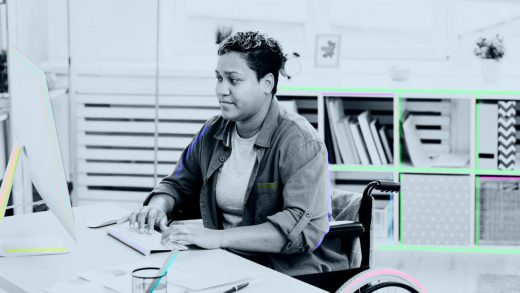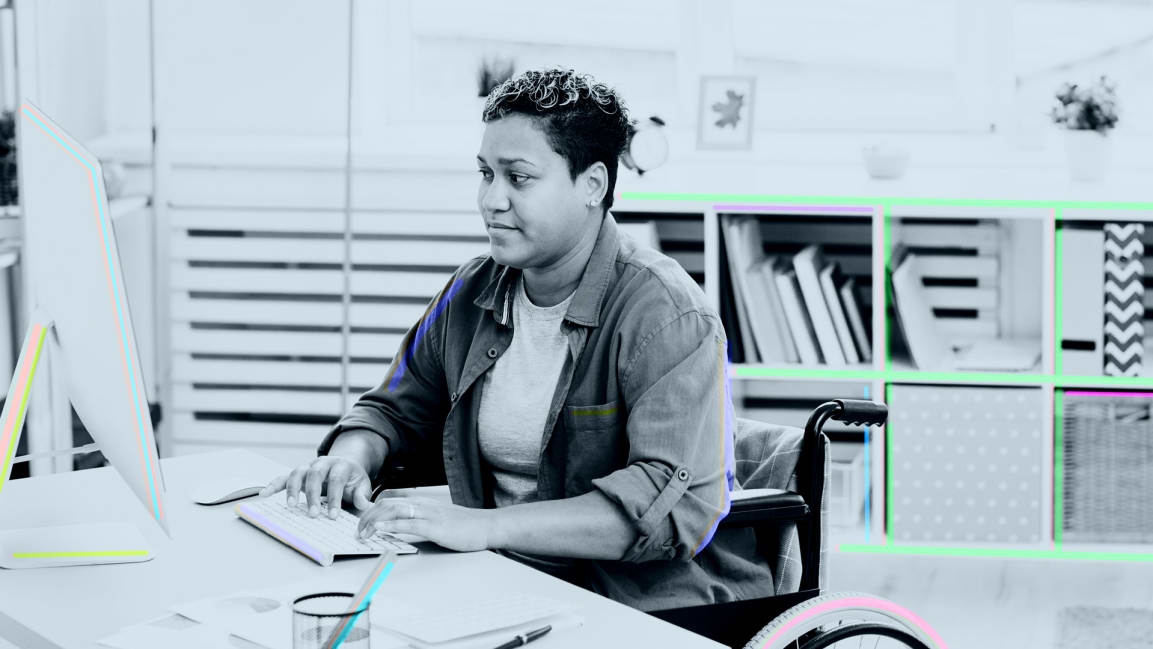How to include workers with disabilities in your DEI initiatives
For my inclusive digital agency, I recently spoke with two of my consulting partners on their perspectives, based on their lived experiences, of why disability inclusion is important in workplaces.
Antoine Hunter, an African American, Indigenous choreographer, producer, person with a disability, and advocate for the deaf community, expresses dedication to spreading education on and respect for his peers. “I believe everyone should be a part of something with everyone having a space to learn from each other and respect each other’s differences. [I see] art as having the power to bring people together and the power to heal,” he says.
Tanisha Dayal, DEI consultant, says, “It’s imperative . . . in 2021 to stop excluding disabilities in DEI initiatives [because a] community gets ignored or sidelined because of a negative and preconceived stigma.”
Honoring the heterogenous dynamics that every individual has to offer would actually be more advantageous/beneficial in achieving impactful productivity, where there is an evolved and safe company culture that showcases the unity of humanity with variegated possibilities.
The harsher reality is a far cry from what DEI initiatives offer, or rather promise. Serious barriers exist that allow unchecked discrimination to persist. The fact that “disabled individuals” are clumped together into ableist terminologies itself downplays the achievements and struggles to attain “equity” at work and in public life.
When developing the models of DEI in your organization, involve individuals with lived experiences who can guide you in executing a model-prototype that can withstand a thorough assessment as to whether it is an impartially efficient model that adheres to the incorporation of the best talent across the world.
Actionable ways to advance disability inclusion
Aubrey Blanche, director of equitable design, product & people at Culture Amp, shares in a 2018 article for First Round Review: “Intersectionality sounds like this big fancy word, but what it really means is that we all have layers. We all contain multitudes, so we need to embrace that,” Blanche explains. “Women isn’t some blanket group. It’s incredibly diverse. When you focus on gender parity only, that leads to the erasure of queer women, people of color, those with disabilities, veterans, you name it.” And Blanche knows this firsthand. “You might look at me and just see a woman,” she says. “But I’m also Latina and mixed race. And I came out as bisexual in college. I have long-term disabilities. So I get what it means to have an invisible disadvantage or have a layer of my identity ignored.”
Including people with disabilities in DEI initiatives is imperative. Executive search firm Heidrick & Struggles stated in a blog post: “The population of people with disabilities is fundamentally different from other populations in ways that must be thoughtfully considered in developing effective inclusion policies and programs.” As we continue to advance DEI initiatives it is increasingly important for businesses and organizations promising change to include the world’s largest minority group.
Jourdan Saunders, MS, CCC-SLP, is the CEO and founder of the Resource Key, an inclusive digital agency supporting business marketing departments with inclusive and accessible social media.
(40)



